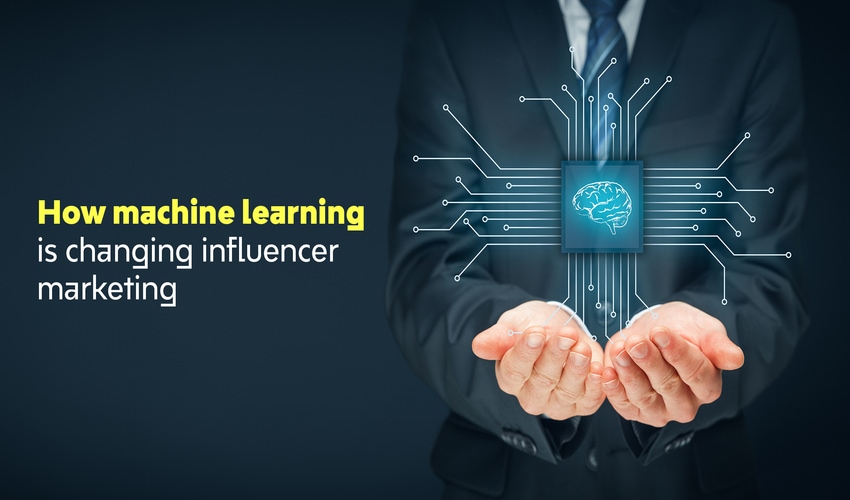
Last updated on July 6th, 2021 at 07:39 am
Just a decade ago, only celebrities and a few devoted bloggers were considered influencers. But today, it seems that social media influencers have grown to fame, saturated the market, and even been victims of fraud.
Influencer marketing has slowly made its way to become an essential aspect of online marketing. It’s been a buzzword for some time, and it’s often discussed in the public sphere. Even so, some people are still uncertain about what influencer marketing is all about. Indeed, some people are perplexed as they hear the word for the first time and ask, “What is influencer marketing?”
So what is influencer marketing?
Influencer marketing, at the most basic level, is a form of social media marketing that relies on endorsements and product mentions by influencers–people that have a large social base and are regarded as specialists in their field. Influencer marketing works because social influencers have a high level of confidence with their followers, and their endorsements act as a source of social evidence to the brand’s future buyers.
ML-enabled influencer marketing systems learn from all of the influencer’s posts and behaviors, and they can determine when brands’ marketing impact will decline or increase. For their marketing needs, advertisers often hire actual influencers or influencer marketing firms.
Many marketers are constrained in their ability to pick suitable influencer marketing campaigns due to the simple availability of influencers and whether they have actual or false engagements and influencing backgrounds. Influencer marketing solutions driven by machine learning can help brands recognize an influencer’s niche experience and ensure they get the best influencer for the job.
What role does Machine Learning play here?
Influencer marketing is being revolutionized by artificial intelligence (AI) and machine learning (ML). Brands benefit from AI-powered influencer marketing technology in three main areas: finding the right creators, recommending effective workflow, and generating more meaningful content. The true benefit of influencer marketing strengthened by data science lies in its capacity to accept an excessive amount of data in each recommendation, particularly as the digital universe continues to grow.
Artificial intelligence (AI) is a computer science field aimed at designing computers or devices that can execute functions that would typically require natural or human intelligence. Several types of AI are widely used in influencer marketing applications and platforms.
While Machine learning is a form of data processing that automates the development of analytical models, it’s a branch of artificial intelligence focused on the premise that computers can learn from data, recognize patterns, and make decisions with little to no human input.
Let’s take a look at how Machine learning and Artificial intelligence are improving influencer marketing.
Identifying the best creators
One of the most challenging problems for advertisers is finding the most appropriate influencers. In a world where consumers are bombarded with commercials everywhere they go, marketers must redefine content to stand out. Every day, the average consumer is subjected to thousands of brand advertisements, according to reports over the years. Brand exposure is at an all-time peak today due to the proliferation of multimedia advertising across various devices. Brands must create content that resonates with their target demographic and breaks through the visual clutter.
Detecting phony influencers and bogus engagement
The issue of fake influencers using social bots to falsify their effect, which costs the industry $1.3 billion each year, makes choosing the right creators for a company much more difficult. AI can help here by allowing for large-scale pattern/footprint analysis among followers or comments, allowing for simple differentiation between computer-generated and real-life influencers. Organizations obviously cannot deal with a bot creator if they perform this manually. Only artificial intelligence (AI) can continuously analyze, manage, and scale a bank of false footprints that may signify fake accounts.
Identifying content that is both interesting and essential
Another challenge is determining what kind of content would resonate most with an influencer’s followers. With the increase in popularity of image and video-based content, automatic processing is expected to assess if the content is producing the desired outcomes.
Marketers need to evaluate the importance of specific information categories, and AI can analyze and measure large amounts of data. It accomplishes this at a broad scale, and the more it performs, the brighter, quicker, and more practical it becomes.
Its ability to create editorial content feedback based on critical outcomes versus hundreds of inputs, as well as pre-flight content success forecasts against a creator’s audience, is another advantage.
Identifying an Influencer’s Influence
Machine, learning-powered influencer marketing programs would not necessarily re-evaluate an influencer’s ability based on results every year or month. ML-powered influencer marketing programs can understand when users will see a rise or decrease in their popularity based on all of their posts and change promotions accordingly.
Predicting and calculating the return on investment (ROI) of a campaign
Calculating the return on investment in an influencer marketing strategy is a daunting job. It’s one thing to collect and analyze feedback metrics from social media platforms; it’s another to translate them into dollar value in terms of total sales.
Regression analysis of critical outcomes versus hundreds of inputs is feasible with AI. This is accomplished using algorithms that can extract correlations from metric blends, find clear correlations between those blends and essential metrics, and use those models to forecast future results. This will take humans years to complete because every designer, brand, and campaign is unique.
AI can also forecast ROI using complex, limited (persona-based) performance benchmarking and forecasts. Marketers must rely on AI, which can accept micro-variables at this stage. A creator’s output is strange – for example, due to the locality and seasonality of a specific campaign. Similarly, when crunching more generalized, top-level observations with complex, large (industry) benchmarking and predictions, only a computer can cope with the vast volumes of big data and inputs.
Wrapping up
One of the fastest-growing fields of marketing is influencer marketing. Now is the time for companies to put resources into improving the efficacy of their influencer marketing strategies. This entails appreciating the value of Machine Learning (ML), which provides meticulous pace, precision, and performance, and incorporating it through influencer marketing.
Influencers – and the agencies that monetize them – are here to remain, much as the rest of digital marketing. The intense rivalry between their AIs, algorithms, and data with social media networks will continue to increase their efficacy and performance.
Now that you got a run at it, you can see the growing stature of machine learning training. More companies will incorporate data science, advanced data analytics, and AI into their development and production processes to improve efficiency, reduce errors, and stay competitive on the road to digital transformation. With the fast-pacing advancements, investing in machine learning certification and machine learning courses is a wise decision to scale heights in a career.
Machine learning will undoubtedly have a considerable impact. We must invest in the training and resources necessary to help people when more existing jobs are replaced, and we adapt to this emerging future. Go quickly search machine learning for beginners and get started already!!!


